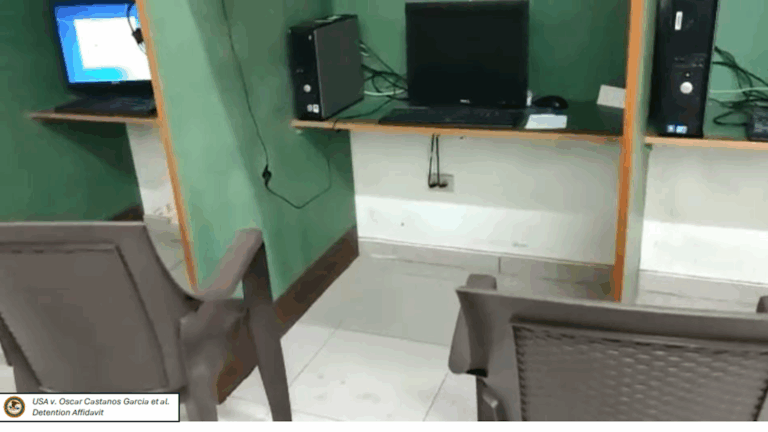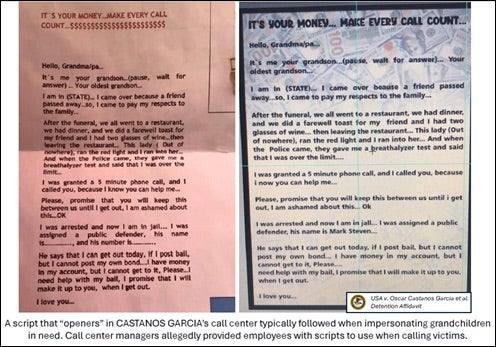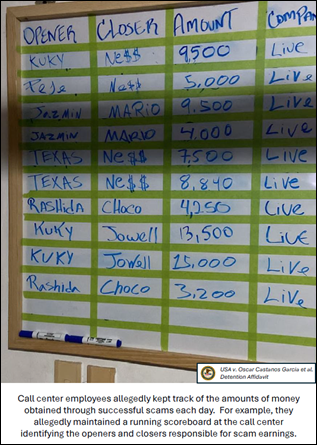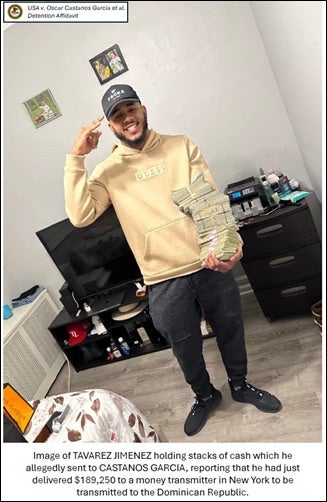[ad_1]
Crime
Four more have been charged but remained at-large of as Tuesday.

Nine people have been arrested and four more charged in relation to an international elder fraud scheme, the Massachusetts U.S. Attorney’s Office announced Tuesday at a press conference. The accused allegedly stole over $5 million from more than 400 victims — who were 84 years old on average — by posing as family members in distress over the phone.
The scheme was based in the Dominican Republic and targeted at least 50 victims in Massachusetts, as well as others across Florida, California, Maryland, and New York.
Law enforcement took “down a transnational criminal organization that exploited one of the sacred bonds of our society, the relationship between a grandparent and grandchild,” Ted Docks, special agent in charge at the FBI’s Boston Field Office, said Tuesday.
“The stories are truly heartbreaking,” Massachusetts U.S. Attorney Leah Foley added. “Praying on the elderly … is ruthless and immoral.”
According to officials, a caller, known as an “opener,” would call an elderly person and pose as a family member, usually a grandchild in an accident or in legal trouble and in need of money, from a call center in Santiago in the Dominican Republic.
The openers, who were typically bilingual and without an accent, used a detailed script and sometimes the names of the victim’s grandchildren from the dark web to make the scheme realistic, authorities said. After that, a “closer,” pretending to be the grandchild’s attorney, would call asking for a sum of money.

A “runner” based in the U.S. would then allegedly order an unsuspecting rideshare to the victim’s house to collect the cash needed for the fake accident or legal problem. In some cases, the opener would send a rideshare to pick up the victim, drive them to a bank to withdraw cash, and then bring the money to the runner, according to Docks.

The callers would sometimes follow up with the victims asking for more money due to a “mix up” or a purported miscarriage that had occurred in the fake accident, officials said. Once the money was obtained by the scammers, it was laundered to the Dominican Republic as business transactions, according to Docks.
The elder fraud ring was brought to the attention of the U.S. Attorney’s Office and the FBI by the Uber Global Security and Investigations Team, which learned that the rideshare app was being used for these scams, according to Docks.

Following a two-year investigation, nine of the 13 suspects had been arrested as of Tuesday morning. Twelve of the suspects face charges of conspiracy to commit mail fraud and wire fraud and money laundering conspiracy, while one is only charged with money laundering conspiracy.
On Tuesday, officials identified Oscar Manuel Castanos Garcia, 33, of the Dominican Republic, as the alleged ring leader; he was one of the suspects in custody. Of the four suspects who remain at-large, two are in the Dominican Republic and two are in the U.S., Foley said.
“The money pretty much is spent, but we have identified numerous assets in the Dominican Republic and we are working with our Dominican Republic counterparts to seize those assets and forfeit them. We will continue to work with them, if there are sales of those assets to compensate victims,” Foley said.
Foley believes there are “without a doubt” more victims than the over 400 reported.
“If you believe you have been a victim of this kind of scam, please let us know,” she said.
Foley urged people to remind elders that law enforcement officials will never ask for money over the phone and recommended coming up with a code word to make family members identifiable over the phone.
Addressing the victims, Docks said, “You’re not alone. You are not foolish. You acted out of love, and you should not be ashamed.”
Anyone who may be a victim of this fraud scheme can contact [email protected], call 1-800-CALL-FBI (1-800-225-5324), or report it at FBI’s IC3 Elder Fraud Complaint Center at www.ic3.gov/CrimeInfo/ElderFraud.
Sign up for the Today newsletter
Get everything you need to know to start your day, delivered right to your inbox every morning.
[ad_2]
Source link




